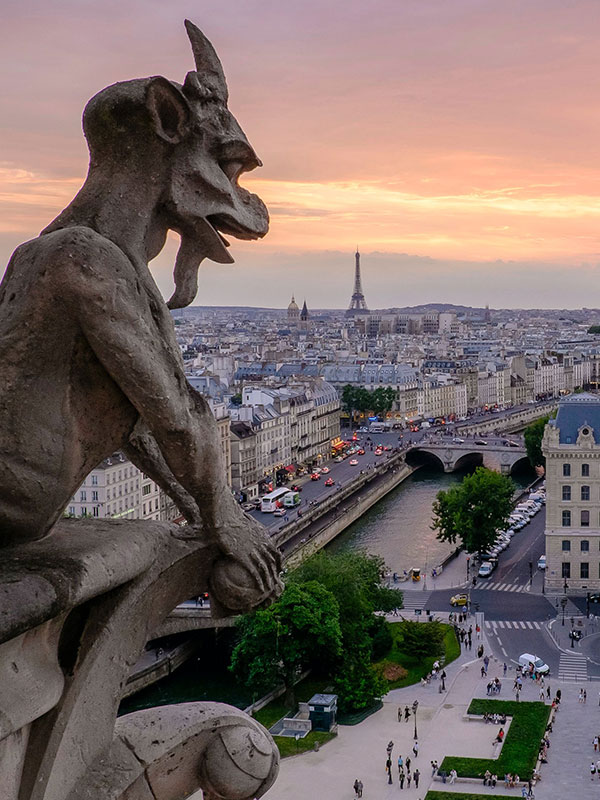Subtotal: $
Checkout
The greatness and the wretchedness of man are so evident that the true religion must necessarily teach us both that there is in man some great source of greatness and a great source of wretchedness. It must then give us a reason for these astonishing contradictions.
Incredible that God should unite Himself to us. This consideration is drawn only from the sight of our vileness. But if you are quite sincere over it, follow it as far as I have done and recognize that we are indeed so vile that we are incapable in ourselves of knowing if His mercy cannot make us capable of Him. For I would know how this animal, who knows himself to be so weak, has the right to measure the mercy of God and set limits to it, suggested by his own fancy. He has so little knowledge of what God is that he does not know what he himself is, and, completely disturbed at the sight of his own state, dares to say that God cannot make him capable of communion with Him.
What, then, will man become? Will he be equal to God or the brutes? What a frightful difference! What, then, shall we be? Who does not see from all this that man has gone astray, that he has fallen from his place, that he anxiously seeks it, that he cannot find it again? And who shall then direct him to it? The greatest men have failed.
Skepticism is true; for, after all, men before Jesus Christ did not know where they were, nor whether they were great or small. And those who have said the one or the other knew nothing about it and guessed without reason and by chance. They also erred always in excluding the one or the other.
What a chimera, then, is man! What a novelty! What a monster, what a chaos, what a contradiction, what a prodigy! Judge of all things, imbecile worm of the earth; depositary of truth, a sink of uncertainty and error; the pride and refuse of the universe!

Photograph by Pedro Lastra
Who will unravel this tangle? Nature confutes the sceptics, and reason confutes the dogmatists. What, then, will you become, O men! who try to find out by your natural reason what is your true condition? You cannot avoid one of these sects, nor adhere to one of them.
Know then, proud man, what a paradox you are to yourself. Humble yourself, weak reason; be silent, foolish nature; learn that man infinitely transcends man, and learn from your Master your true condition, of which you are ignorant. Hear God.
For in fact, if man had never been corrupt, he would enjoy in his innocence both truth and happiness with assurance; and if man had always been corrupt, he would have no idea of truth or bliss. But, wretched as we are, and more so than if there were no greatness in our condition, we have an idea of happiness and cannot reach it. We perceive an image of truth and possess only a lie. Incapable of absolute ignorance and of certain knowledge, we have thus been manifestly in a degree of perfection from which we have unhappily fallen.
It is, however, an astonishing thing that the mystery furthest removed from our knowledge, namely, that of the transmission of sin, should be a fact without which we can have no knowledge of ourselves. For it is beyond doubt that there is nothing which more shocks our reason than to say that the sin of the first man has rendered guilty those who, being so removed from this source, seem incapable of participation in it. This transmission does not only seem to us impossible, it seems also very unjust. For what is more contrary to the rules of our miserable justice than to damn eternally an infant incapable of will, for a sin wherein he seems to have so little a share that it was committed six thousand years before he was in existence? Certainly nothing offends us more rudely than this doctrine; and yet without this mystery, the most incomprehensible of all, we are incomprehensible to ourselves. The knot of our condition takes its twists and turns in this abyss, so that man is more inconceivable without this mystery than this mystery is inconceivable to man.
Whence it seems that God, willing to render the difficulty of our existence unintelligible to ourselves, has concealed the knot so high, or, better speaking, so low, that we are quite incapable of reaching it; so that it is not by the proud exertions of our reason, but by the simple submissions of reason, that we can truly know ourselves.
These foundations, solidly established on the inviolable authority of religion, make us know that there are two truths of faith equally certain: the one, that man, in the state of creation, or in that of grace, is raised above all nature, made like unto God and sharing in His divinity; the other, that in the state of corruption and sin, he is fallen from this state and made like unto the beasts.
From Pensées, by Blaise Pascal (1660), translated by W. F. Trotter.
Blaise Pascal (1623–1662) was a French mathematician, and religious thinker. Envied by René Descartes for his success in the mathematical world, he is best known for is Pensées, a work of Christian apologetics.





